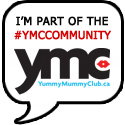I forgot I was sharing Erin’s parenting articles and thought that I would switch them to Monday’s Motivation for a while. This week let’s be motivated to putting fun into parenting and be sure to let me know how you plan to do that! Last week I played soccer, went swimming, went to the park and walking with the children (well, most of them biked). We had a lot of fun doing those things. It’s hard to remember to be fun when life gets busy. I know since I have been working from home, I have to make the effort to be fun or else I am bogged down with work and that makes for a very dull mommy!
By David Stoepker, Psy.D., with Erin Brown Conroy, M.A.
Putting Fun into Parenting
Do you remember Dennis the Menace cartoons? Robert Ketchum, the cartoon’s author,often struck a familiar chord with parents through his humorous and honest comic strip. Like the one where Dennis and his pal Joey are playing in the foreground, while Dennis’mother stands in a doorway some distance in the background, red-faced and obviously shouting at the top of her lungs for Dennis. Dennis says to Joey, “I don’t have to go in yet. That’s not her real angry voice.”
Parenting can be very stressful and even seem impossible at times – especially when children are oppositional. From mild resistance to downright defiance, children oftenchallenge us, stretching our parenting skills and patience. And the odds of our child’s resistance often seem to increase directly in proportion to how much of a hurry we’re in! It’s at these times that few moms and dads describe parenting as “fun.” Yet fun may be the key to breaking the parent-child stand off.
The Benefits of Fun, Humor, and Play
Fun, humor, and play are important in raising children for several reasons:
1. Research shows that laughter is healthy. There are actual changes that take place physically, within us, when we laugh. After laughter, chemicals that suppress the immune system drop, infection-fighting agents rise, blood pressure drops, and pain tolerance increases.
2. For children, play is a major form of communicating and learning about life. Play helps to “speak” to a child in the language that they understand best: play.
3. Humor relieves stress. By creating emotional distance from the stressful event,there is a cathartic release of emotion, breaking the negative cycle in which thechild and parent are spinning.
4. Laughing with our child enhances the bonding process. Bonding through laughter can especially be seen in infants ages three to four months, who connect with parents through smiles and laughter long before they’re able to talk. Some research even demonstrates that mothers who laugh more have babies who laugh more. People in general experience a sense of “connectedness” when sharing a good laugh together.
How to Bring Laughter, Play, and Humor into your Parenting
If you let your imagination go, you can come up with several ways to incorporate laughter, play, and humor into your parenting. Brainstorm ideas with a group of parents,and your list can be endless. Here are some suggestions to get you started on your way to putting fun into parenting.
• Set aside a time each day (such as after a meal or at bedtime) when each family member shares a joke, riddle, humorous event, or some other funny experience that happened that particular day.
• Occasionally – and unexpectedly – walk in on a child who’s busy, smile mischievously, and ask, “Do you want to hear a joke?” (This is much better than always catching a child doing something wrong and administering a punishment)
• Have a family bulletin board especially for cartoons and jokes.
• Leave notes with a smiling face or with an affirming comment for your child to find.
• Play charades together as a family dramatizing cartoons or humorous events.
• Have a “family basket” decorated with smiles that every member can put especially funny cartoons, jokes, or riddles. Draw out one or more to read when you and your child need some “laughter medicine” in your life.
Humor to Relieve Stress
When children have difficulty complying with a parent because of frustration, tiredness,or stress, it may help to break the cycle with some quick humor. Here are some practical suggestions for taking a U-turn when things are relationally going south and need a turn around through a speedy dose of humor.
• A parent can call “time out for a joke” and read a quick quip from the “familybasket” described above.
• If the children are complaining about the food at mealtime, say, “The next one to complain has to have chicken for supper!” Then bring out a rubber chicken and hang it on the chair of the complainer.
• If your child is slow to brush his or her teeth, wind up a set of plastic chattering teeth and challenge your child to finish brushing before the teeth stop chattering.
• When homework gets frustrating, bring out a rubber pencil or giant-sized pencilto help with those “big problems.” Giant erasers are also for sale in novelty and gift shops for “big mistakes.” Recently, I found ink pens that light up to “shed alittle light on the problem.”
• Reading the parent a joke from a favorite joke book can be a reward, once your child has (finally) complied with your expectation or desire.
Play and that Challenging (and all-too-familiar) Oppositional Stage of Development
Play can be especially helpful when children are going through the oppositional stage of development. The use of playful competition can be an almost miraculous strategy to usefor results with a smile. Here are some suggestions:
• If your child tends to resist washing hands before meals, playfully say, “I’ll finish washing my hands before you do!” If said and done in a clearly light-hearted,playful way, positive competition can work well to help your child along with asmile. This method works great for not just hand-washing, but for any behavior,such as coming to the table for a meal, getting in the car, clicking on a seatbelt, o rbrushing teeth.
• Simply frame a situation in terms that imply that your child is in control. If your tired child is slow to pick up toys at bedtime, say to your child, “You can’t make me pick up a toy.” Then let your child know that the game works in this way: Every time your child picks up a toy, the parent has to pick up a toy as well. Once the child is “into” the game, make it especially fun by begging your child to notpick up any more toys so that you, as a parent, don’t have to pick up any more toys. You can even begin to complain, “Not again! No, please! No more!” Kid soften get a charge out of “making the parent do something.” If said and done with playfulness, the toys (or other task) will be completed in no time at all. Approaching oppositional children with humor and play (as in these examples) as amatter of routine can remove much stress from the task of parenting – and save a lot oftime and energy, compared to methods of yelling and punishing.
A Caution
One caution in using humor: Humor must be done in a playful, uplifting way. Avoid sarcasm and hostile humor, which will actually make the situation worse and be emotionally hurtful to your child.
A Final Word
As a parent, humor is absolutely necessary for your mental health. Keeping a perspectiveof humor goes a long way for feeling good and acting in a healthy way toward your child.Here are some final suggestions for ways that you, the parent, can maintain a perspectiveof healthy humor.• When you’re in a stressful situation, pretend you’re on a television, taping an “ILove Lucy” show, “America’s Funniest Videos,” or “Candid Camera.”
• Smile spontaneously to a stranger and watch their reaction.
• Draw a picture of a stressful event with your non-dominant hand.
• Set up a minimum number of mistakes to make in a day. Humorously keep count.
• Put a note on your keys that says, “If you have these, I don’t.”
• Finally, if you’re in a hurry, play some appropriate fast-paced background music such as the William Tell Overture. (Editor’s Note: Look up The Mom Song on YouTube!) Laugh, play, and have fun with your children. It can make a vast difference in your relationship together.
About Authors
Erin Brown Conroy, MA, is a writer specializing in books on relationship connections, curriculum, and web marketing. She is a freelance writer/consultant, the DL Professor of writing courses for Patrick Henry College, and a Master Teacher for the PHC Prep Academy Online. Erin is also the mom of 13 children by birth, marriage, and adoption and has been homeschooling for 27 years. She lives in Ohio with her husband, five children still at home, and three amazingly-smart (and cuddly) Australian Labradoodles. You can read more of Erin’s articles on parenting at www.erinbrownconroy.com.
David Stoepker, Psy.D., is a clinical psychologist at Pine Rest Christian Mental HealthServices in Kalamazoo, Michigan, where he’s worked with children and families for 20years. For information on his availability for workshops on Putting the Fun into Parenting, email Dr. Stoepker at www.PineRest.org.
Used with Permission.


























Leave a Reply